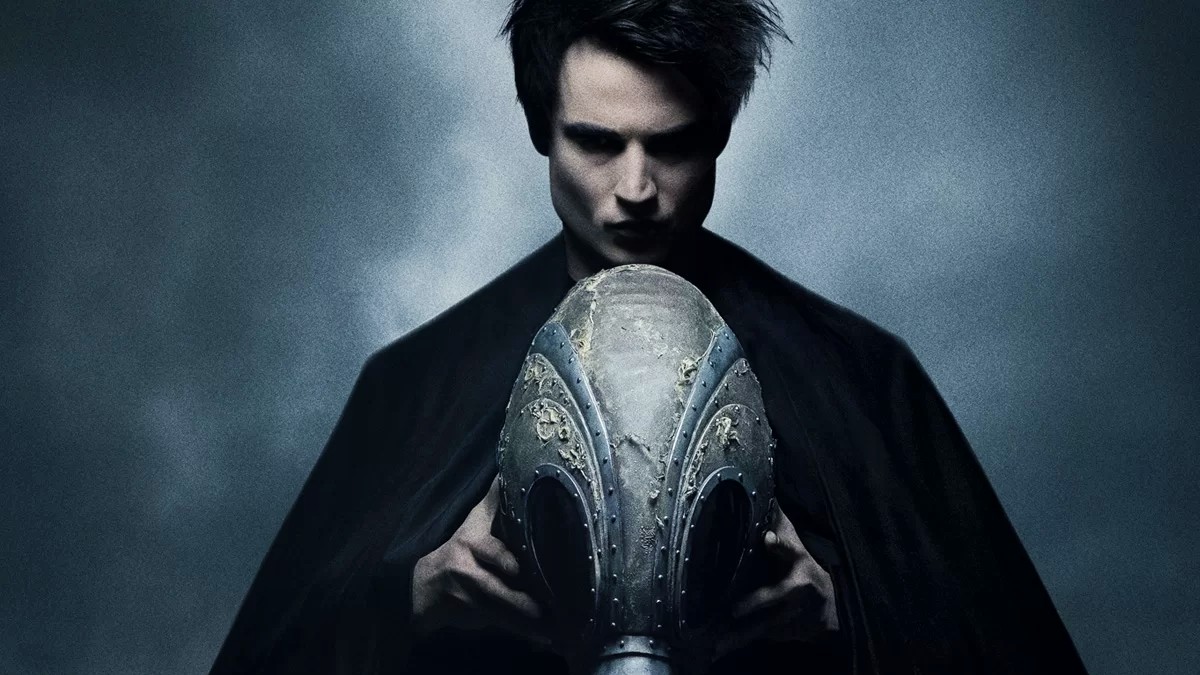‘The Sandman’ Bonus Episode Perfectly Captures Performative Allyship

Fans of Neil Gaiman’s The Sandman were blessed on Friday with a bonus episode of the acclaimed Netflix adaptation. The episode, written by longtime Sandman fan Catherine Smyth-McMullen, adapts two stories from the collection Dream Country: “A Dream of a Thousand Cats” and “Calliope.”
“Calliope” tells the story of author Richard Madoc (Legends of Tomorrow‘s Arthur Darvill), who struggles to come up with an idea for a new novel after the success of his first book. With his manuscript overdue and his agent and publisher breathing down his neck, Madoc visits fellow writer Erasmus Fry (Derek Jacobi) to bring him a rare artifact called a bezoar. In return, Fry gives Madoc a macabre gift: the goddess Calliope (Melissanthi Mahut).
Calliope is the muse of inspiration, whom Fry has ritually bound to him by finding and burning her scroll. Fry explains that he’s been using Calliope’s gifts to give him ideas for books, and then passes her on to Madoc. Calliope protests, saying that Fry promised to free her when he died, but Fry doesn’t care. Madoc takes her home, refuses to free her, and locks her in a room. When Calliope refuses to give Madoc inspiration for his novels, he rapes her, and then spends years enjoying the wealth and recognition that her inspiration gives him.
Madoc is a horrible person on every level, but there’s one aspect of his character that’s especially galling. When an admirer approaches him at a party and asks about his female characters, Madoc calls himself a feminist writer—even though he’s keeping a woman prisoner in his home. Then, in a later scene, Madoc takes a call with the movie studio adapting his new book into a film. He demands that the studio hire at least 50% women and people of color for the production, and says the studio needs to publicize it so they can’t back out. As he talks to them, Madoc smiles at Calliope as if to say, “See? I’m not so bad! I’m a feminist, after all!”
Madoc’s behavior is extreme, especially since The Sandman is a fantasy series involving goddesses and ritual bindings, but what makes “Calliope” such a smart story is that it depicts some surprisingly realistic performative allyship.
What is performative allyship?
Performative allyship is when someone makes a show of being virtuous in their public persona while failing to do any actual anti-oppression work. At best, it’s a hollow gesture that makes someone feel good about themselves without actually accomplishing anything. At worst, it’s a deliberate cover for abuse. So, the social media influencer who scolds people for being problematic but never attends a protest or donates to a cause? Or the director who prides himself on his strong female characters but sexually harasses the women he works with? Yeah. That kind of thing.
Madoc is adept at making himself look like a feminist to all his admirers, and that facade helps him rationalize his most disgusting actions. He takes on the identity of a feminist for clout, using it as one more way to stoke his own ego. In telling the movie studio to hire a diverse crew, he outsources all the work of actually making it happen to other people, and takes on absolutely no responsibility himself. Yeah, it’s good that he’s leveraging his power to get more women and POC hired, but the only reason he’s doing it is to absolve himself of the guilt of keeping Calliope prisoner. You get the feeling that if the studio says no, he’ll just shrug and wait for the royalty check to arrive.
Richard Madoc is an abuser, rapist, and misogynist who gets his comeuppance. But remember that you don’t have to be a total monster to indulge in performative allyship. You can do it without realizing you’re doing it, and you probably have. I know I have. In a climate where retweeting something is easy but the path toward real change isn’t always clear, it can be tempting to make a public declaration but then fail to follow up with action. Real anti-oppression work involves a lifetime of learning, staying humble, and putting in the hours. A sanctimonious social media post often serves more to assuage your own guilt than it does to make people’s lives better.
At the very least, real allyship involves not imprisoning a goddess, using her to revive your failing career, and invoking the wrath of her immortal ex-husband.
(featured image: Netflix)
Have a tip we should know? [email protected]
